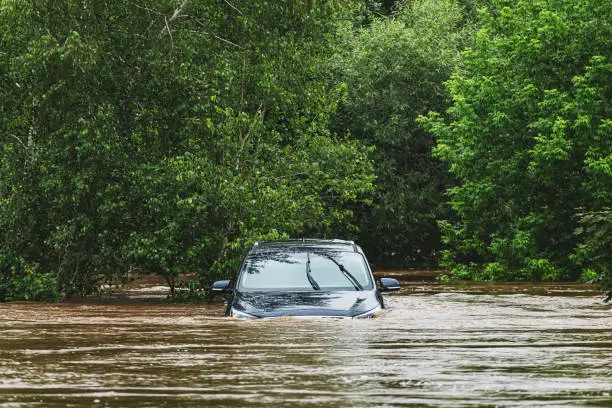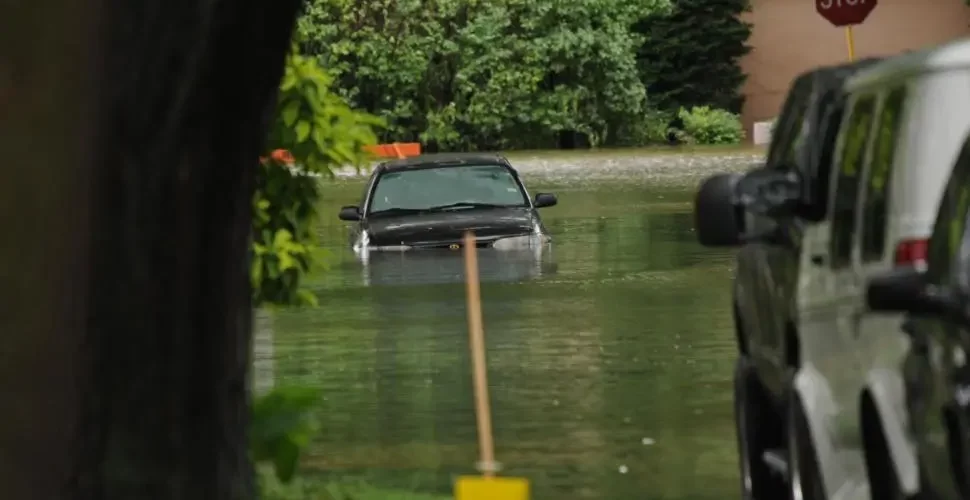Flooding is a common natural disaster in many parts of the United States, and Arkansas is no exception. With its diverse geography, including rivers, lakes, and a varied climate, the state often experiences heavy rains and storms that can lead to significant flooding.
This poses a considerable risk to properties, including homes and vehicles. One common question among Arkansans is: Does Flood Insurance Cover Cars In Arkansas?
This blog delves into whether flood insurance covers cars in Arkansas, the specific provisions in Arkansas, and practical steps for vehicle owners to protect their assets.
Understanding Flood Insurance in Arkansas
Flood insurance typically falls under two main categories: the National Flood Insurance Program (NFIP) and private flood insurance. The NFIP, managed by the Federal Emergency Management Agency (FEMA), provides most flood insurance policies in the U.S. However, it primarily covers buildings and their contents, not vehicles. For vehicle owners, the situation is different.

Auto Insurance and Flood Coverage
When it comes to cars, flood damage is covered under comprehensive auto insurance, not through traditional flood insurance policies like the NFIP. Comprehensive auto insurance, often referred to as “other than collision” coverage, protects vehicles from a variety of non-collision-related damages. This includes theft, vandalism, fire, and natural disasters like floods.
In Arkansas, as in other states, having comprehensive auto insurance coverage is crucial if you want protection against flood damage to your vehicle. This type of insurance is optional but highly recommended, especially in flood-prone areas.
Importance of Comprehensive Auto Insurance in Arkansas
Arkansas’ susceptibility to flooding makes comprehensive auto insurance particularly important. The state experiences a range of weather patterns, including heavy rainstorms, flash floods, and even the aftermath of hurricanes. Areas like Little Rock, Pine Bluff, and Fort Smith have all faced significant flooding recently. Without comprehensive coverage, car owners would bear the full brunt of repair or replacement costs due to flood damage.
What Does Comprehensive Auto Insurance Cover?
Comprehensive auto insurance covers several types of flood-related damage, including:
Engine Damage: Water can severely damage a car’s engine, rendering it inoperable.
Electrical Systems: Floodwaters can destroy a vehicle’s electrical systems, including the wiring, sensors, and onboard computers.
Interior Damage: Water can ruin the upholstery, carpeting, and interior electronics.
Total Loss: If the flood damage is severe enough, the insurance company might declare the vehicle a total loss and provide compensation based on its market value.
Steps to Take Before and After a Flood
To maximize the benefits of comprehensive auto insurance, vehicle owners in Arkansas should take several proactive steps:
Review Your Policy: Ensure that your comprehensive auto insurance policy is up-to-date and you understand the coverage limits and deductibles.
Park Strategically: During flood warnings, park your vehicle on higher ground, away from areas prone to flooding.
Document Your Vehicle’s Condition: Take photos of your vehicle before a potential flood event to have a record of its condition.
Post-Flood Documentation: After a flood, thoroughly document the damage with photos and videos. This will be crucial when filing a claim.
Contact Your Insurance Company Promptly: Report the damage as soon as possible to initiate the claims process. Provide all necessary documentation and follow their guidelines for assessments and repairs.
The Claims Process
Filing a claim for flood damage under your comprehensive auto insurance involves several steps:
Immediate Contact: Notify your insurance provider immediately after discovering the damage.
Provide Evidence: Submit photos, videos, and any other relevant documentation of the damage.
Assessment: An insurance adjuster will assess the damage to determine the repair costs or if the vehicle is a total loss.
Repair or Replacement: Depending on the assessment, your insurer will either cover the repair costs or provide a payout based on the car’s market value if it is deemed a total loss.
Special Considerations in Arkansas
Arkansas presents unique challenges and considerations for flood insurance and vehicle protection:
Rural Areas: Many parts of Arkansas are rural, where flood risks might be underestimated. Comprehensive auto insurance is equally important in these areas.
Seasonal Weather: Arkansas experiences significant seasonal weather changes, which can lead to unpredictable flooding. Residents should stay informed about weather forecasts and be prepared to take protective measures.
Community Resources: Familiarize yourself with local resources such as community alerts, emergency services, and evacuation routes.
Alternative Options
While comprehensive auto insurance is the primary way to protect vehicles from flood damage, there are alternative measures and additional coverage options:
Gap Insurance: This can cover the difference between the vehicle’s value and the amount still owed on a loan if the car is totaled in a flood.
Rental Reimbursement: This can cover the cost of a rental car while your vehicle is being repaired due to flood damage.
Roadside Assistance: Some insurance policies offer roadside assistance, which can be invaluable during a flood event if you need immediate help.
Conclusion
Floods are an inevitable natural disaster that can cause extensive damage to properties and vehicles. In Arkansas, where flooding is a recurrent issue, having comprehensive auto insurance is not just a good idea—it’s essential. This type of insurance provides the necessary coverage to repair or replace your vehicle in the event of flood damage.
Vehicle owners should regularly review their insurance policies, understand the coverage details, and take proactive measures to protect their cars before, during, and after flood events.
By staying informed and prepared, Arkansans can mitigate the financial impact of floods on their vehicles and ensure a swift recovery process.
In summary, while traditional flood insurance like the NFIP does not cover vehicles, comprehensive auto insurance does. For residents of Arkansas, securing this coverage is a critical step in safeguarding against the unpredictable and often severe flooding that affects the state.
For more information on flood insurance costs in Arkansas, read our blog post How Much Is Flood Insurance in Arkansas?
Stay protected and ensure your vehicle is covered today! Contact us to learn more and secure your coverage! Get a free quote now!


